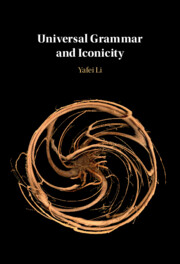This article presents an analysis of the distribution and syntactic behavior of the English expression slash, as in John is a linguist slash musician. The interpretation of this ‘effable slash’ is largely equivalent to intersective and, but it differs from other connective devices like Latin cum, N–N compounding and the orthographic slash </>. A corpus study of American English finds that slash is productive in this use. Its syntactic properties confirm its status as coordinator, but it is distinguished from standard coordinators and and or, in that it imposes category restrictions on the conjuncts: it cannot coordinate full clauses or noun phrases with determiners. I propose that words like slash, period and quote form a class of ‘effable punctuation’ that entered the spoken language from writing. In sum, by incorporating slash into the grammar of English, I argue that slash is a rare example of innovation in a ‘very closed’ functional category.
